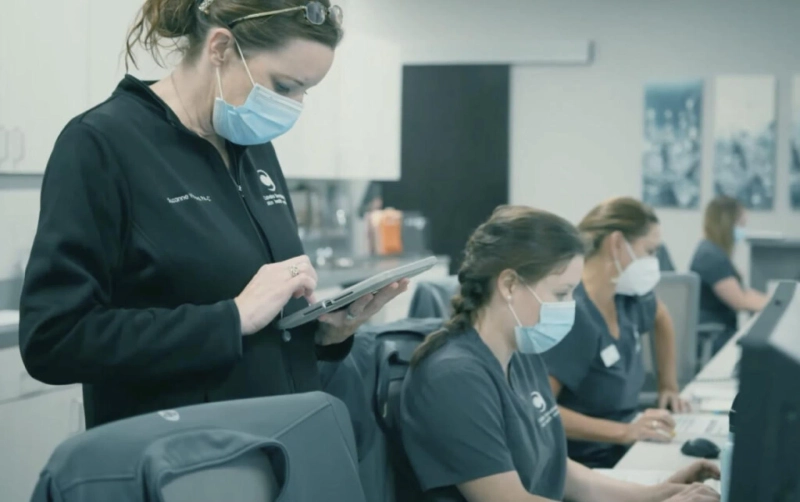What is Contract research organization?
A Contract Research Organization (CRO) is a company that provides outsourced services to the pharmaceutical, biotechnology and medical device industries. They provide services ranging from pre-clinical research to clinical trials and post-marketing surveillance studies. CRO`s are typically hired by drug companies to perform all or part of a clinical trial on their behalf.
What is CRO`s role in clinical trials?
CRO's (Clinical Research Organizations) play an important role in clinical trials by providing operational and scientific expertise. They are responsible for conducting the trial, including enrollment of participants, data collection and management, monitoring safety events, and ensuring that all regulatory requirements have been met. The CRO also provides statistical analysis of the data collected during the study to assess its validity and interpret ability.
What is Contract Research Organization`s role in clinical trials?
Contract Research Organizations (CROs) are third-party organizations that provide services related to clinical trials. These services include protocol development, patient recruitment and retention, data management, biostatistics and analysis, regulatory affairs assistance, quality assurance oversight and project management. CROs can help reduce costs for sponsors of clinical trials by providing experienced personnel and infrastructure necessary to conduct a successful trial. They also help ensure compliance with all applicable regulations.
What is Contract Research Organization and why is it important?
A Contract Research Organization (CRO) is an organization that provides specialized services to the pharmaceutical, biotechnology, medical device and healthcare industries. CROs provide a variety of research-related services such as clinical trials management, data analysis, regulatory affairs consulting and market research. The primary purpose of a
Contract Research Organization (CRO) is to reduce costs associated with drug development by outsourcing certain components of the process to experts in those areas. This allows companies to focus more on their core competencies rather than having to manage multiple aspects of product development themselves. Additionally, it can allow for faster timelines since these tasks are often completed more quickly when outsourced due to expertise and experience within the field.
What are the main components of Contract Research Organization?
1. Clinical Trial Services: This includes services such as study design and protocol development, clinical monitoring, patient recruitment, data management, statistical analysis, regulatory support and medical writing. 2. Pre-Clinical Research and Development: CROs provide preclinical research services including drug discovery/development studies in animals or laboratory models to assess the safety of new drugs before they enter human trials. 3. Drug Manufacturing: CROs can also offer assistance with manufacturing pharmaceuticals for clinical trial use or commercial distribution. 4. Regulatory Affairs Support: The primary role of CROs in this area is to assist companies with navigating regulations related to drug approval processes around the world on behalf of their clients’ products and services. 5 Consulting Services: Many contract research organizations offer consulting services that include market analysis and competitive intelligence gathering to help companies make informed decisions about their product pipeline strategies
What are the main applications of contract research organization?
1. Clinical Trials: Contract research organizations (CROs) are typically hired by pharmaceutical, biotechnology, and medical device companies to manage the clinical trial process from start to finish. This includes study design, protocol development, patient recruitment and retention, data management and analysis, report writing and regulatory submissions. 2. Pre-Clinical Studies: CROs are also experienced in providing preclinical services such as toxicology studies (genotoxicity testing), animal model selection/validation/characterization studies for target identification/validation programs or efficacy studies of drug candidates in various disease models. 3. Regulatory Affairs: Many CROs provide regulatory affairs services including preparation of Investigational New Drug applications (INDs), New Drug Applications (NDAs) for submission to the FDA or other global health authorities; as well as post-approval support such as manufacturing changes and labeling updates. 4. Bioanalysis & Biomarker Discovery: CROs have expertise in bioanalytical method development and validation using LC-MS/MS technology for quantification of small molecules or biomarkers in biological samples like plasma or serum; they can also help with biomarker discovery through proteomic technologies like 2D gel electrophoresis coupled with mass spectrometry techniques like MALDI-TOF MS / LC MS / MS etc., which can be used to identify novel proteins associated with diseases processes that may serve as potential therapeutic targets or diagnostic markers.. 5. Medical Writing Services: Medical writers at contract research organizations are responsible for preparing documents related to
clinical trials such as protocols, investigator’s brochures and informed consent forms; they also write manuscripts for publication in peer reviewed journals after completion of a clinical trial program


